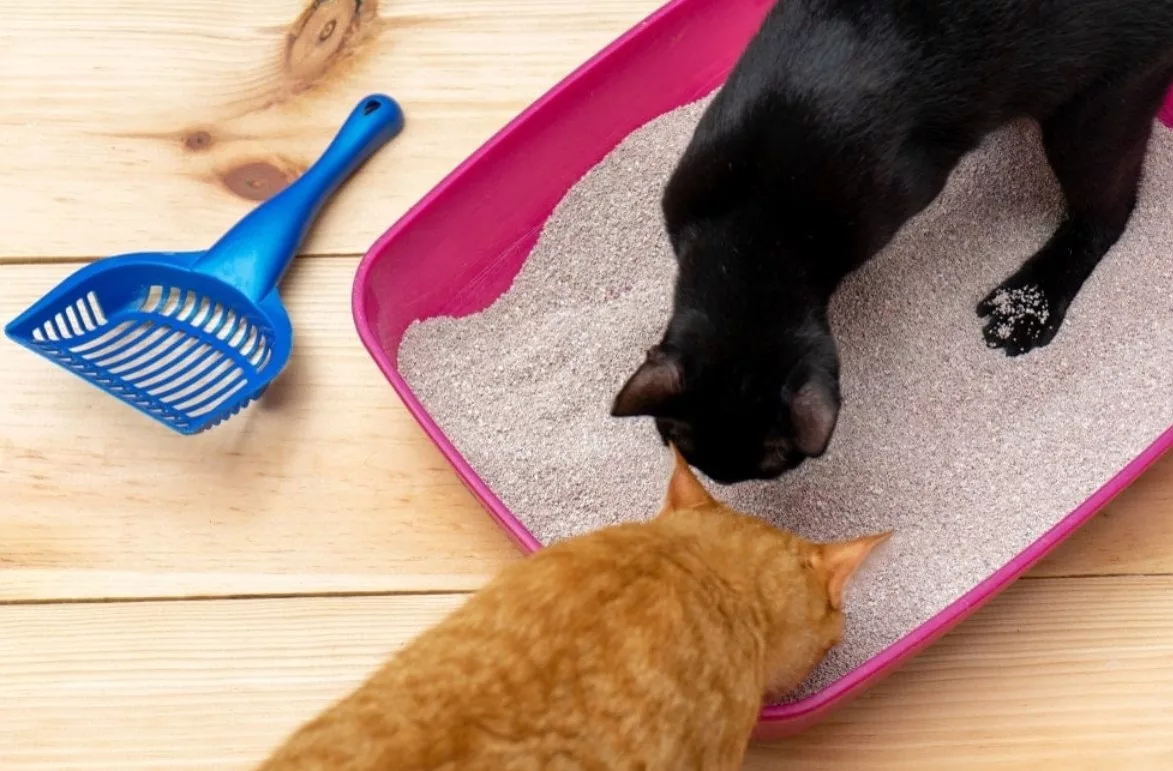Cats are known for their curious behavior, and one peculiar habit that some felines develop is eating litter. It may seem strange and even concerning, but there are reasons behind this behavior. In this blog post, we’ll explore seven surprising facts about cats eating litter, shedding light on the truth behind their peculiar habits.
Natural Instincts and Hunting Behavior
Cats are natural-born hunters, and their instincts play a significant role in their behavior, including their litter-eating tendencies. In the wild, cats consume their prey entirely, including bones and fur. Eating litter may mimic this behavior, as some cats may try to satisfy their hunting instincts by ingesting small particles found in the litter box.
Nutritional Deficiencies and Pica
Pica is a condition in which animals consume non-food items. In some cases, cats may develop pica due to nutritional deficiencies. If their diet lacks essential nutrients, they may seek out alternative sources, including litter. This behavior is their way of trying to fulfill their nutritional requirements, although it’s not a healthy or appropriate method.
Medical Conditions and Digestive Disorders
Cat-eating litter can also be a sign of an underlying medical condition or digestive disorder. Conditions such as inflammatory bowel disease or gastrointestinal parasites can cause discomfort or irritation in the cat’s digestive system, leading them to eat litter in an attempt to alleviate the discomfort. It’s crucial to consult a veterinarian if you notice this behavior in your cat.
10 Essential Tips for Successful Kitten Feeding: Cool Comprehensive Guide
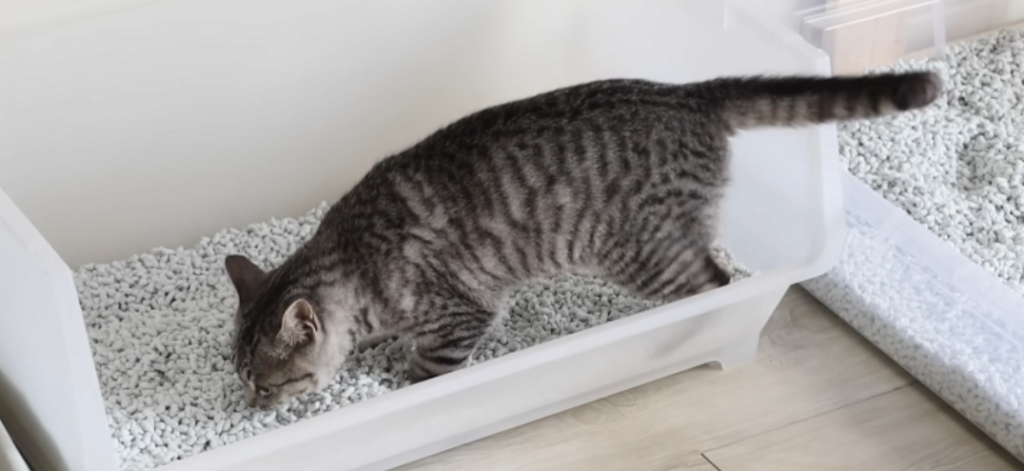
Real-Life Example:
For instance, my cat, Whiskers, started eating litter out of the blue. Concerned, I took her to the vet, who diagnosed her with a gastrointestinal issue. Once we treated the underlying condition, her litter-eating behavior gradually stopped.
Potential Ingestion of Harmful Substances
One of the risks associated with cat-eating litter is the potential ingestion of harmful substances. Many commercial litters contain chemicals, fragrances, or clumping agents that can be toxic if consumed in large quantities. Ingesting these substances can lead to gastrointestinal distress and other health complications in cats.
Intestinal Blockages and Health Complications
Another danger of cats consuming litter is the risk of intestinal blockages. Litter particles can accumulate in their digestive tract, causing obstructions that require immediate medical attention. If left untreated, these blockages can lead to severe health complications and even surgical intervention.
Choosing the Right Litter and Litter Box Placement
10 Surprising Facts About Cats Eating Dog Food: Best Complete Guide
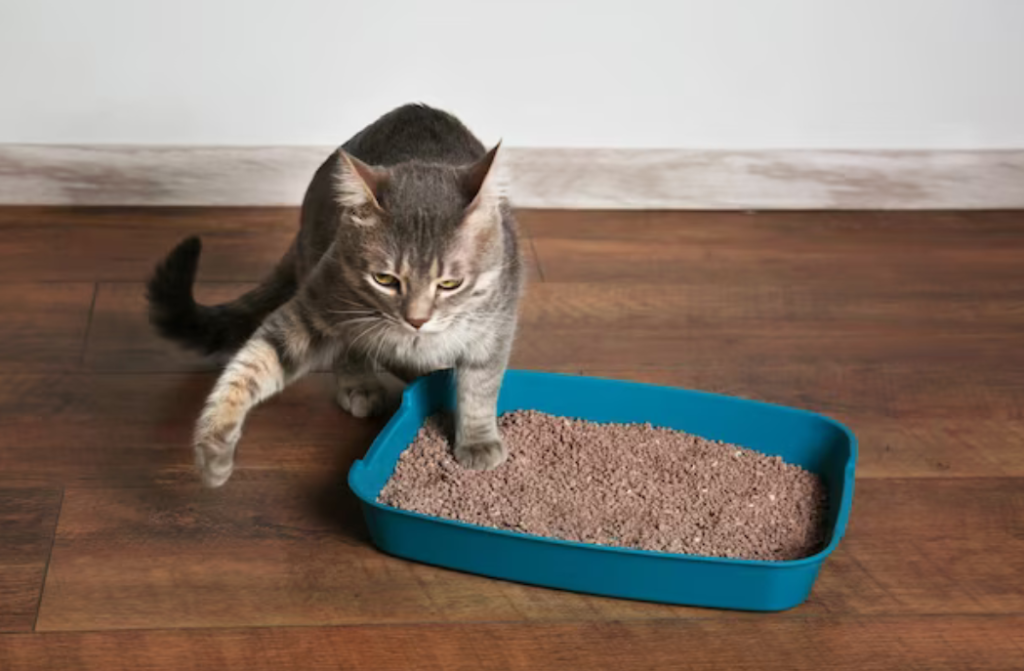
To prevent or manage litter-eating behavior, it’s essential to choose the right litter and ensure proper litter box placement. Opt for litter made from natural materials that are free from harmful additives. Additionally, provide multiple clean litter boxes in accessible locations to encourage regular litter box use.
Behavioral and Training Techniques
Training and behavioral techniques can also help redirect a cat’s litter-eating behavior. Use positive reinforcement by rewarding your cat for appropriate litter box use. Additionally, providing interactive toys and playtime can help fulfill their natural hunting instincts, reducing the urge to eat litter.
Cats eating litter, most relevant content around the net www.thesprucepets.com, www.rover.com, www.petmd.com
Frequently Asked Questions About Cats eating litter
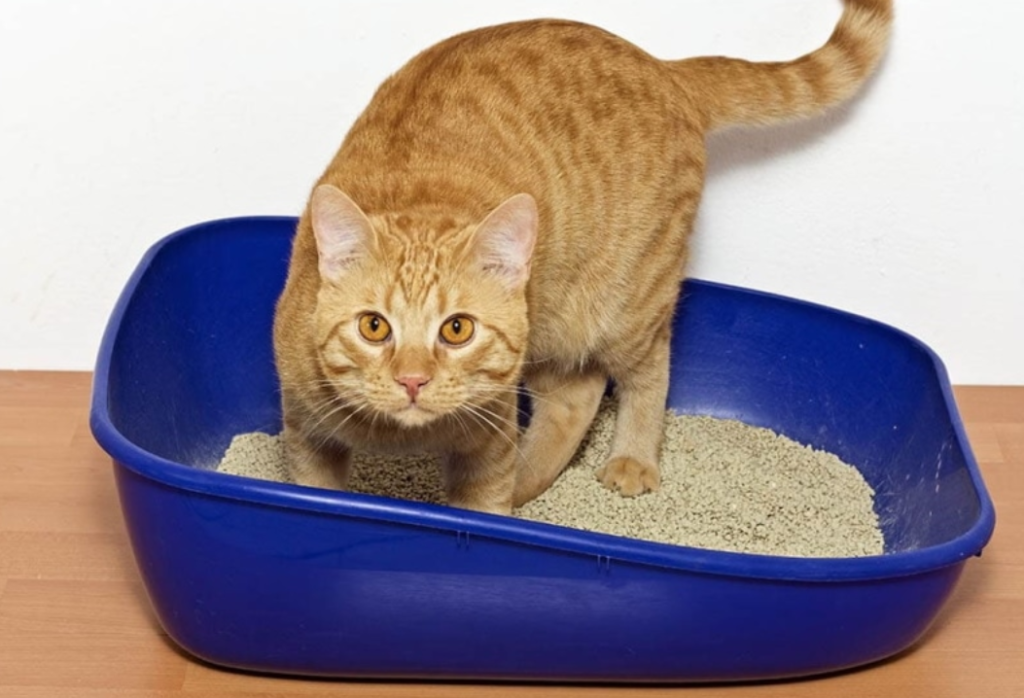
10 Essential Tips for Managing Cat Litter in Pregnancy: Best Comprehensive Guide
Q: Is it normal for cats to eat litter?
A: While it may not be considered “normal” behavior, some cats do exhibit the habit of eating litter. This behavior can stem from instincts, such as hunting behavior, or nutritional deficiencies. However, it’s important to note that cat-eating litter can also be a sign of an underlying medical condition or digestive disorder. If your cat is consistently consuming litter, it is recommended to consult with a veterinarian to rule out any health concerns and address the issue appropriately.
Q: What are the risks of cats eating litter?
A: Cat-eating litter poses several risks. Ingesting litter can expose cats to harmful substances found in commercial litters, such as chemicals or clumping agents. This can lead to gastrointestinal distress and other health complications. Additionally, litter consumption can result in intestinal blockages, which may require immediate medical intervention. It’s crucial to monitor and address this behavior to ensure the well-being of your feline companion.
Q: How can I prevent or manage my cat’s litter-eating behavior?
A: To prevent or manage cat-eating litter, consider providing a balanced and nutritious diet to address potential nutritional deficiencies. Choose litter made from natural materials and avoid those with additives or fragrances. Ensure proper litter box placement and offer multiple clean litter boxes inaccessible areas. Consulting with a veterinarian can help determine any underlying medical causes and provide guidance on behavioral and training techniques to redirect your cat’s behavior.
Q: Can cat-eating litter be harmful to their health?
A: Yes, cat-eating litter can be harmful to their health. Consuming litter exposes cats to potentially toxic substances present in commercial litter. These substances can cause gastrointestinal distress and other health complications. Additionally, the ingestion of litter particles can lead to intestinal blockages, which can be life-threatening if not addressed promptly. It is essential to monitor and address this behavior to protect your cat’s well-being.
Q: Is cat-eating litter a sign of a medical problem?
A: Yes, cat-eating litter can be a sign of an underlying medical problem or digestive disorder. Conditions such as inflammatory bowel disease or gastrointestinal parasites can cause discomfort or irritation, leading cats to consume litter in an attempt to alleviate these issues. If you observe your cat consistently eating litter, it is advisable to consult with a veterinarian. They can perform a thorough examination and recommend appropriate diagnostic tests to identify and address any potential medical causes.
Conclusion
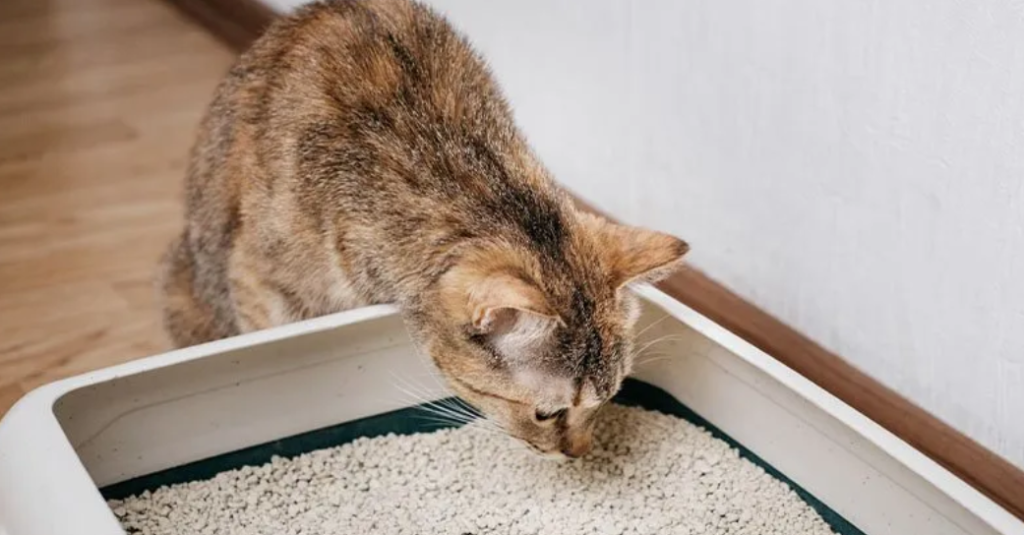
Understanding the reasons behind cats eating litter is the first step in addressing this behavior. Whether it’s their instincts, nutritional deficiencies, or medical conditions, it’s crucial to provide a safe and healthy environment for our feline companions. By taking preventive measures, seeking veterinary advice, and implementing appropriate training techniques, we can help our cats overcome this peculiar habit and promote their overall well-being.
We would love to hear from you! Your thoughts and experiences matter to us. If you found this blog post on cat-eating litter informative or have any additional insights to share, we invite you to leave a comment below. Do you have a story about your own cat’s litter-eating behavior or any tips that have worked for you? Perhaps you have questions or concerns that you’d like to discuss further. Whatever it may be, we value your feedback and look forward to engaging with our readers. So, don’t hesitate—share your thoughts with us in the comments section below!
